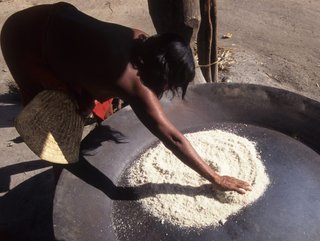US Food Supply Chains 'Pose ESG Risk', Says Moodys

When people think of human rights infringement in the food supply chain, there is often an assumption it is countries in the developing world that are most at fault.
However, global integrated risk assessment firm Moodys says that such problems also exist in the US food supply chain.
In a blogpost, Moodys observes that, while US shoppers choose foodstuffs based on price or nutritional value, “another consideration is the labour conditions involved in producing that food”.
It points out that, according to the International Labour Organisation (ILO), in 2021 more than 50mn people were living in modern slavery, of which 28mn were in forced labour, with more than 3mn of these being children.
ILO figures also show the number of people in modern slavery has risen significantly in the five years from 2016-2021, with 10 million more people affected. Women and children remain disproportionately vulnerable.
Moodys references the US Bureau of International Labor Affairs (BILA), which it says “maintains a list of goods it believes are produced with child or forced labour”. (BILA works to improve working conditions and living standards and to prevent the workplace exploitation of children and other vulnerable populations.) The list of goods include:
- Rice from African countries such Mali and Kenya
- Coffee from the Dominican Republic and El Salvador
- Fish from Cambodia and Thailand
Moody’s says all of these foodstuffs can be found in most US grocery stores, and that they “may have been sourced, packaged, or processed using forced or child labour”.
Food supply chain study shows US ESG risk
It also points to a prominent 2023 study on forced labour in supply chain published in the world’s leading multidisciplinary science journal, Nature
Academics from the UK’s University of Nottingham and from the Friedman School of Nutrition Science calculated the risk of forced labour across all aspects of the US food supply, excluding seafood.
They found that 62% of forced labour risk came from production or processing that occurs on US soil, Moodys writes.
The study, it notes, also shows that characteristics such as poverty, language barriers and uncertain immigration status render individuals at
Moodys also gives the example of an unnamed US confectionary firm that was charged In November 2023with sourcing cocoa using child “Although this is only one example, forced labour can happen at any point in the supply chain,” Moodys reminds us.
It adds: “Supply chains are under more scrutiny due to anti-slavery legislation, and this will only increase as other governments and international organisations discuss laws, such as the European Union’s proposal to ban products made with forced labour from the EU market.
“As the world becomes more concerned with how products are processed, companies must monitor their supply chains to limit involvement in human trafficking and forced labour, which could result in reputational damage and financial penalties.”
- Hapag-Lloyd on path to Zero-Emission Shipping through ZEMBASustainability
- PostNL’s bid to make its Transport Network more SustainableSustainability
- GXO: Helping Virgin Media O2 cut down on Single-Use PlasticsSustainability
- Supplier Collaboration Key to Johnson & Johnson Climate PushSustainability






